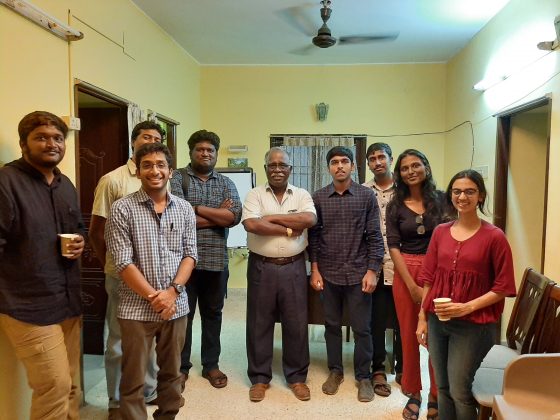KEY POINTS
- Block chain technology brings in transparency, immutability and accountability which can transform the acquisition process into a very scientific, transparent and efficient system.
- The benefits derived from implementing blockchain technology would include elimination of subjectivity, bring in accountability, completely eliminate the role of undue influence and middlemen, and will create a level playing field for all players .
- Smart contracts using blockchain technology can ensure efficient compliance and enabling greater auditability and real-time identification of responsibility.
Introduction
Blockchain technology has become a popular term today invariably because of the benefits it provides in a P2P (peer-to-peer) network like data immutability, irreversibility, accountability and transparency. It was first used by Satoshi Nakamoto, (a pseudonym of a person or a group of people), founder of bitcoins to prevent backdating and data tampering. Blockchain is an incorruptible, decentralized, digital ledger of transactions that can be programmed to record not only exchange of information. Critically, for information to be exchanged between any two nodes within in a blockchain system, all nodes (or most nodes, depending on the structure) must agree that the exchange of information is legitimate. They do this through a variety of methods; either acting as a recognized trusted party or by solving complex cryptographic problems. Once the exchange is accepted, that exchange is written into a shared copy of a digital ledger that contacts all records of transactions that is effectively unchangeable. The benefits blockchain provides has caught the eyes of a lot of people in the world and are looking forward to implementing this technology in almost all fields like healthcare, automobile, defence, banking, agriculture and so on. Countries like China, Russia, America and South Korea are highly interested in implementing this technology in defence and other sectors. One of the key reasons being this technology optimises business processes effectively wherever it is implemented. This paper focuses on the application of blockchain technology in the Indian defence acquisition process focusing on its advantages in its implementation.
Analysis
Blockchain technology is a trust-less architecture. ‘Through crypto-economics, users don’t need to trust in any individual or organisation but rather in the theory that humans will behave rationally when correctly incentivised’. Blockchain in defence acquisition process would be a phenomenal game changer as it would lead to faster and quality decision-making because all the parties in the acquisition process are thoroughly informed and committed. Blockchain offers a more secure record of supply chain management and enables greater auditability and real-time identification of responsibility. Since blockchain acts as an important tool to take major decisions, it pushes all the nodes (participants like Service Headquarters, DRDO-Defence Research and Development Organisation, HQ IDS, Acquisition Wing of MOD, Defence Finance, and so on) in the network to feed high quality and accurate information in the network. It establishes clarity in the process ensuring clarification of responsibilities to all the nodes in the network.
The inherent security that stems from the nature of immutability and peer-to-peer characteristics of the blockchain lends itself to some critical applications within defence. Successful exploitation of blockchain is dependent on stringent data governance and quality assurance. Once the data is stored on a blockchain it is immutable, and hence, it forces participants to become quality assured with their data/information prior to storage. Quite naturally, it will bring in a culture of professional diligence, accuracy, and integrity. Blockchain works as an immutable record of transactions that do not require to rely on an external authority to validate the authenticity and integrity of the data/information.
Smart Contracts: If blockchain technology is taken up in defence acquisition process, smart contracts become an essential part of it. Smart contracts are a set of computer programs on the blockchain that can automatically execute activities when certain conditions are met. They can be viewed as a normal contract with terms and conditions that is converted to a digital script and stored on the blockchain. Since blockchain works on a distributed decision making model and not a central party that is powered to make all the decisions, the process might get complicated at times. To ease this, smart contracts can automate parts of the process that can overcome this complexity. For example, smart contracts can track the transfer of equipment from the vendor to buyer. Once the buyer receives the equipment as per the conditions given in the smart contract, it will automatically expedite the funds to seal the transaction. Besides, smart contracts can eliminate the problems of delayed compliance or non-compliance to contractual issues and vendors’ propensity to contest penalties, a frequent problem in Indian defence contracts. Blockchain based smart contracts are legally fool-proof and hence, compliance is the only way out.,
Since defence acquisition process and its inner workings function on a parallel basis to save time, the process could be more optimised if blockchain is effected fully. The whole process can come under blockchain right from generating an RFI, (where it deals with acquiring information about vendor capabilities and their product features for making better buying decisions) till post-contract management. It is also important to recognise the need to invest in creating significant data-bases that store and process volumes of confidential, operational, and industrial information.
This information can enable creation of verified and immutable data-base on the nation’s production capacity, indigenous technological status to ultimately enabling the decision on imports vs indigenous development, governed by operational requirements of time and relevance. It will also enable the users (military) to have a better mapping of Indian technological capabilities, resulting in more sound formulation of SQRs. Essentially the RFI process should collate:
- Production capabilities inside the country.
- Technological expertise available within the country for design and development within the required time frame.
- Identifying the solution of acquiring technologies through JV route.
- Establishing products and technologies available outside the country in the context of our operational requirements.
- Production capabilities outside the country.
- Armed forces modernisation requirements for enhancing the war fighting capability.
All of this can be made a holistic process and come under the purview of blockchain technology, which will optimise the whole procedure bringing in accountability, transparency and data immutability that has been the dire need for a long time.
The whole acquisition process involves multiple departments and stakeholders that interact through multiple meetings, discussions, brainstorming, and final decisions arrived at. Currently all these are controlled through bureaucratic procedures and centralised control . This classical procedure has given room for any number of accusations, scams, and delayed decisions. Blockchain technology overcomes all of these problems as it is based on innovative automation using AI, complete decentralisation, and the very fact that its structure is based on trust-less architecture. Hence, any decision that is committed to is recorded for posterity, and is immutable, transparent, and irrevocable. More importantly, there will no cases of missing files, no cases of mistaken attributability, and the question of illegal modification is simply impossible. While implementation will have technical challenges, blockchain technology will make the system unquestionably transparent, accountable, and of high integrity.
Transparency is the biggest strength of the blockchain technology, and any attempt at post event modification or tampering with records, is impossible. This tamper-proof benefit offered by blockchain ensures integrity in the acquisition process resulting in trust amongst the nodes in the network.
Important details in the selection process can be scrutinised even more effectively, for example:
- Company’s financial status
- Product features and specifications
- Annual report
- Past contract dealings and so on
All of this can be witnessed by all the nodes in the network and a sound and swift decision can be made.
Private Blockchain Network: While the general or public systems can use the public blockchain, the defence sector will necessarily be using the private blockchain network. A private blockchain is a permissioned blockchain. Permissioned networks place restrictions on who is allowed to participate in the network and in what transactions. It works with revealing the identity, role and organisation of the node before adding them to the concerned network, so one can determine whether the information has to be sent to them or not. This makes the nodes accountable to their actions in the process and any signs of actions by them, which can be detrimental, are easily exposed and corrective actions can be initiated. Where parties are culpable, penal actions can be made swift and effective. This type of blockchain is present in private enterprises for swift and sound decision making and meeting compliance requirements. Private and closed blockchain can be implemented within the procurement committee, who are in charge of making decisions regarding supply chain management and acquisition of products and spares across all ranges.
Conclusion
Blockchain will be a total game changer if implemented in our defence acquisition system. By using blockchain technology teams building decentralised projects can take advantage of its most valuable strength – the ability to reach a shared truth that everyone agrees on without intermediaries or a centralised authority. The chain works as an immutable digital ledger. It is not possible to modify any block without changing the entire chain, this makes it highly valuable in what is often, a highly contested and complex defence domain.
It is also highly beneficial for defence industries for their own functioning, transparency and efficiency. Recognizing the benefits offered by it, countries like the US, China and South Korea have already initiated the process of implementing blockchain in their respective defence industries. Issues like financial mismanagement, mysterious and anonymous order approvals, inability to track orders in supply chain and so on can easily be eliminated.
Blockchain technology is seriously being looked at or being implemented by many countries in areas of defence and security, blockchain technology in defence, blockchain for military defence, blockchain for aerospace and defence etc.
The immutability of blockchains allows all participants involved in the network to be confident in the fact that the data written to them hasn’t been tampered with or changed in anyway and that it will be available and accessible far into the future. India’s entrenched bureaucratic structure and its political culture tends to favour archaic and over-centralised systems for vested interests. Given the nature of India’s challenges in areas of defence modernisation, failure of its control over critical technologies, inefficiencies in its defence industries (both private and public), and a high import-dependency for defence equipment, it is imperative to start with innovative technologies like the blockchain to reform its defence architectures, acquisition system in particular. Political will is necessary to initiate this transformation. With the current Government mandate, modernisation in Indian defence being one of the main objectives, initiating it from the acquisition process would be the way to go about it.
S Swaminathan is a research analyst with TPF. He holds a masters in Defence and Strategic Studies.
Image Credit:Photo by André François McKenzie on Unsplash











